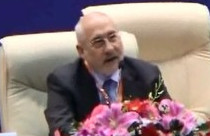
. > RESEARCH > MANAGEMENT
Standardization pushes forward national governance
Author : LIN YUEQIN and HOU JUNJUN Source : Chinese Social Sciences Today 2019-12-23
CHANGSHA—Standardization is an important factor facilitating governance, said experts at the 4th International Symposium on Standardization and Governance recently held in Changsha, Hunan Province.
Standards are one of the basic elements of the National Quality Infrastructure (NQI), said China’s former State Councilor Zhang Gang. Standardization can provide technical support for promoting high-quality economic development and building an innovative country. It is an institutional arrangement that promotes the modernization of the national governance system and its capabilities. Zhang also mentioned that standardization cooperation is an important way to improve global governance and promote sustainable development.
Wang Ping, former deputy chief engineer of China National Institute of Standardization, said that the coexistence of traditional standardization organizations and standards alliances has become a new pattern in the global standards governance system. As far as the current global standards governance system is concerned, traditional standardization organizations still play a major role in the global “formal” standardization network, but alliance standardization will complement traditional standardization and gradually form an associative mechanism.
Adrian Goh, director of ISO regional engagement, said that in the standard-setting process, it is important to identify the motivation and methods of stakeholder participation.
Analyzing global ICT standardization from a legal perspective, Olia Kanevskaia, a PhD candidate at Tilburg Law School in the Netherlands, proposed that standardized governance has a very important position in global ICT standards. The main goal of formulating organizational governance is to achieve a balance of interests and prevent anyone from becoming dominant.
Dieter Ernst, a senior fellow at the Centre for International Governance Innovation in Canada, said that intensified technological friction between China and the United States has limited US technology exports to China, and that the battle for standardization of governance is a key element. The technical friction between China and the United States may lead to the differentiation of the international standards system, which is very unfavorable for standardization organizations.
Heejin Lee, a professor at Yonsei University in South Korea, analyzed the role of standards in national governance in the case of the Australian Railway. She said that Australia had once used different gauges for railway construction due to conflicts of interest. This reflects the closedness of the economic system and that of the governments associated with it. However, such concepts and practices are still seen today, and there are still contradictions in the fields of standardization and governance. A new and reasonable governance structure has yet to be formed.
Interview with Wang Gungwu on significance of studying overseas Chinese
Wang Gungwu is a distinguished Australian historian who studies overseas Chinese. He currently works at the Faculty o...
-
On the rat/mouse of the zodiac
2020-02-20
-
Regional development calls for Huaihe culture’s soft power
2020-01-10
-
Archaeological discoveries unveil Maritime Silk Road
2020-01-06
-
China’s industrial art printing
2019-12-10
-
Yue-Gan Ancient Road: A journey into Hakka history
2019-05-13
-
The Lantern Festival in Dream of the Red Chamber
2019-02-18













 2011-2013 by www.cssn.cn. All Rights Reserved
2011-2013 by www.cssn.cn. All Rights Reserved